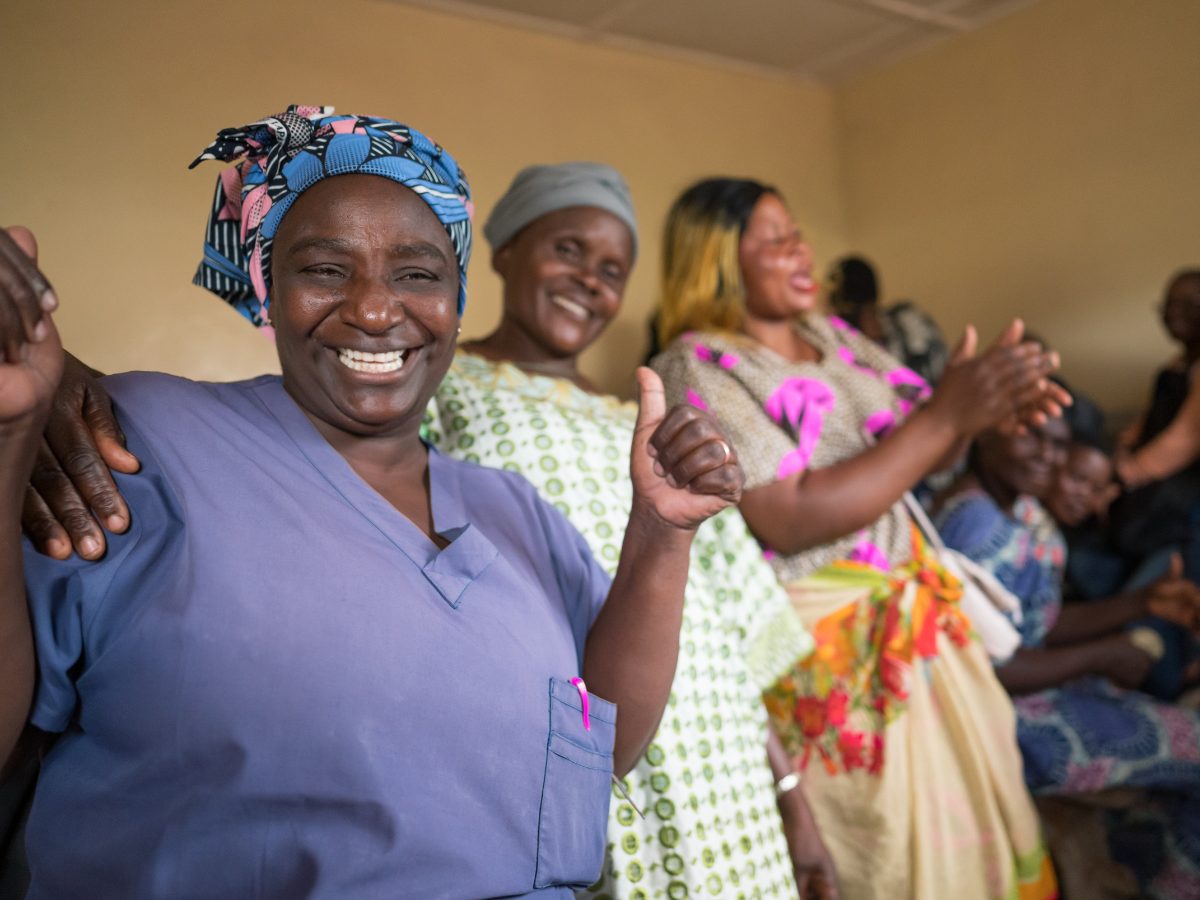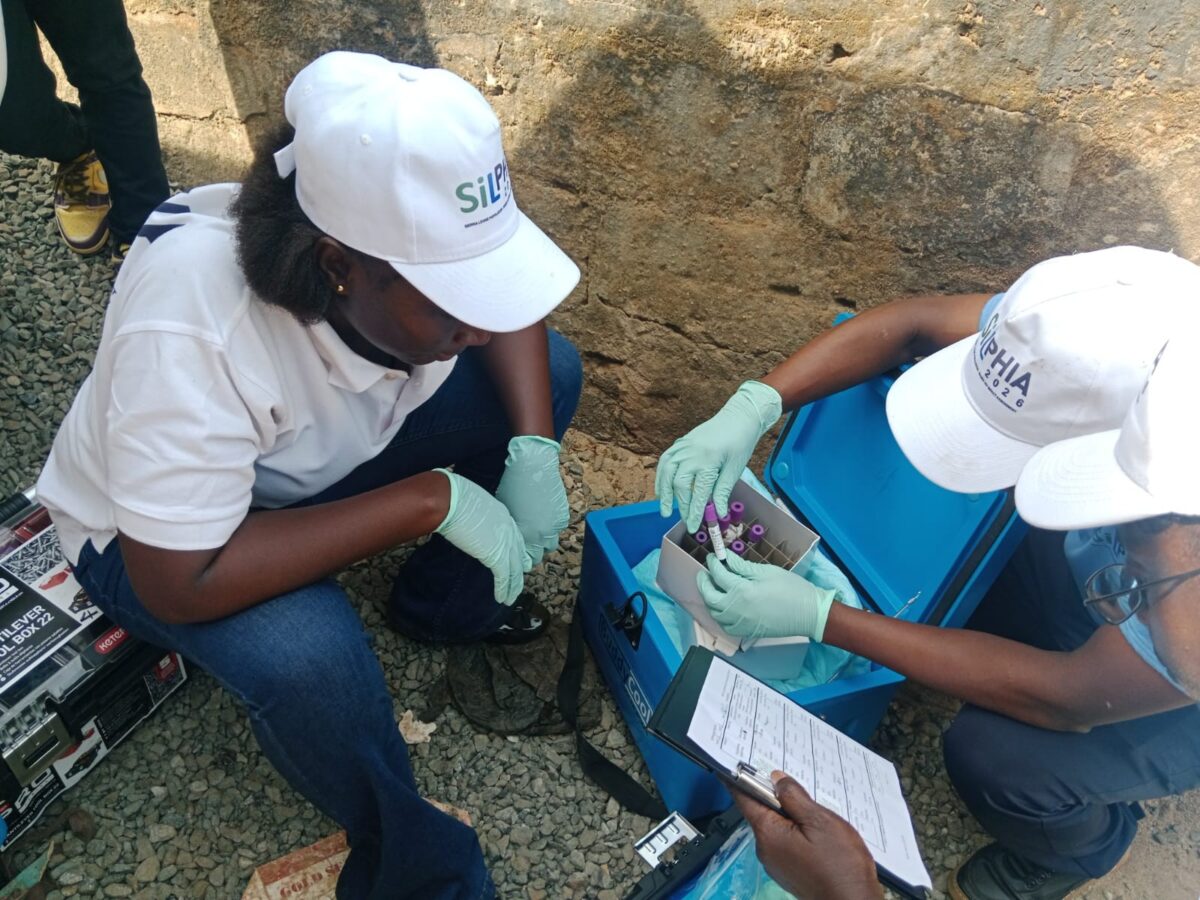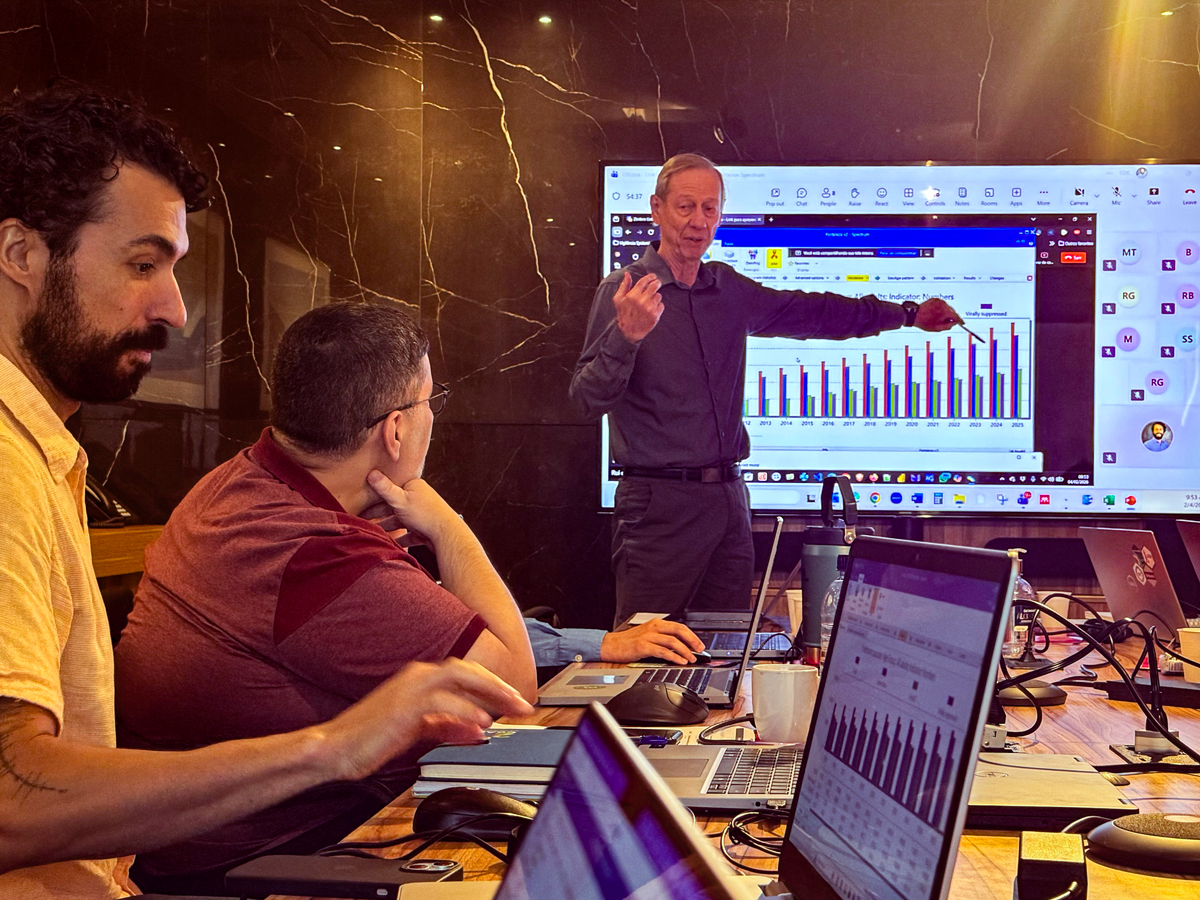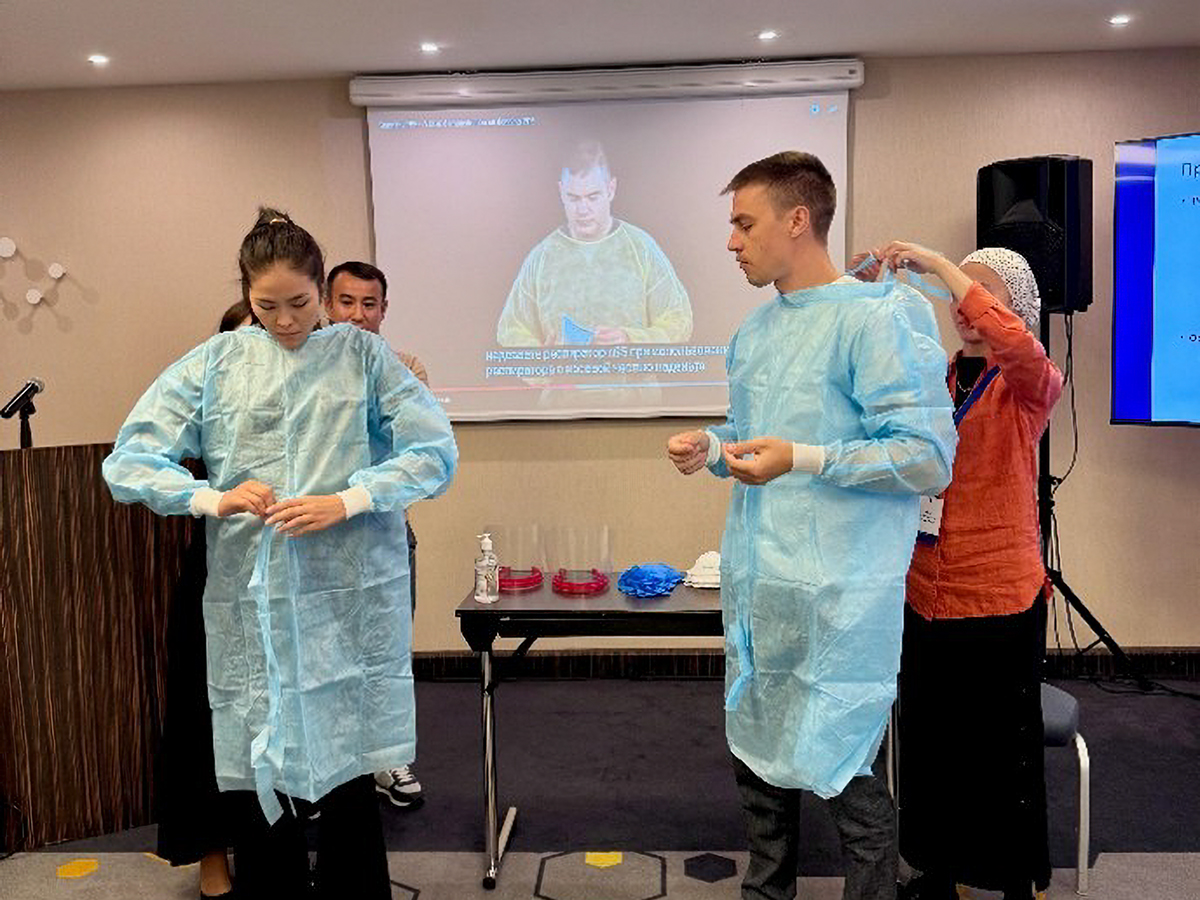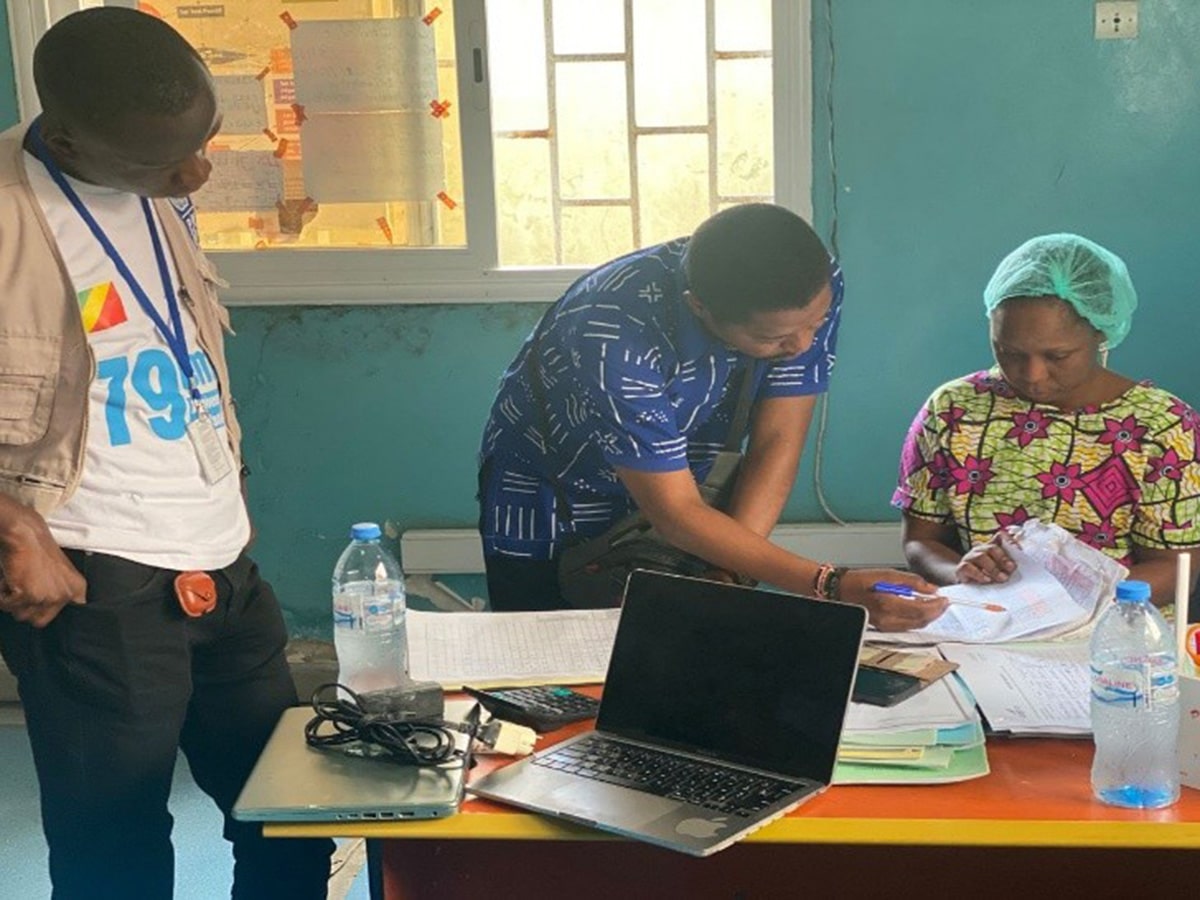In Lubumbashi, Democratic Republic of Congo (DRC), a group of women gather, carrying with them the money they earned during the week.
“I am here,” each woman says, leaning forward to state their attendance and placing some money in a box in the center.
The group, which targets HIV-positive and HIV-negative caregivers of orphan and vulnerable children (OVC), is one of 34 throughout Lubumbashi. Members of the group come together not only in solidarity around their own or a family member’s HIV health status, but to gain financial skills to begin saving for the future – a future many of them now have after adhering to antiretroviral treatment (ART) consistently for the first time.
With funding from the U.S. President’s Emergency Plan for AIDS Relief (PEPFAR) through the Centers for Disease Control and Prevention (CDC), ICAP at Columbia University in DRC is working to improve the economic stability of households so that family members living with HIV can reach better outcomes regarding continuity of treatment and viral load suppression.
The savings and loan groups meet regularly to contribute to a communal bank they started together. ICAP supports the groups to identify leaders and provide training on important financial planning skills, such as how to track money spent on a personal ledger, assess how much their money has grown, and how to safely borrow. ICAP also supports and tracks individuals who have started their own businesses using money they have borrowed from the bank. Together with ICAP, the group also developed, signed, and follow a code of ethics for contributing to the bank.
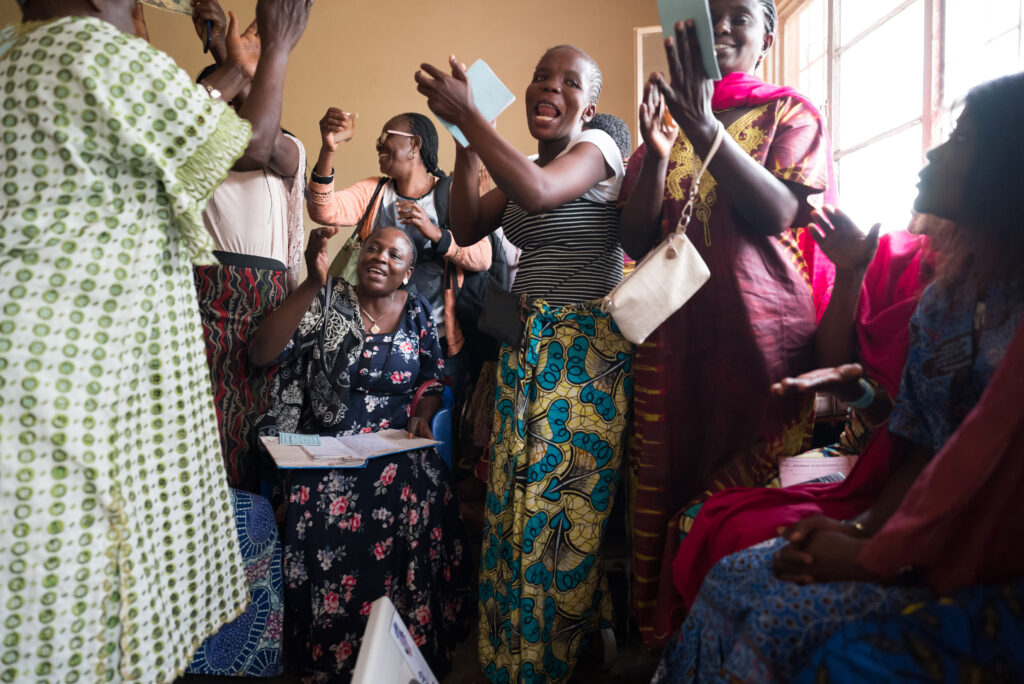
Members of an ICAP-supported savings and loan group in Tshamilemba, DRC, celebrate when a group member adds money to their communal bank
Ultimately, the bank serves as a crucial safety net that members can turn to when they need it, including a “solidarity account” they are not required to pay back into in case of emergencies and in times of illness.
Janinette, for example, is HIV-positive and one of the younger members of a savings and loan group in Tshamilemba health zone, DRC. With the support of the bank, she took out a small loan to start her own business sewing and selling clothes, and with that money, she was able to pay for her mother’s doctor’s bills. Next, she said, she hopes to buy a sewing machine.
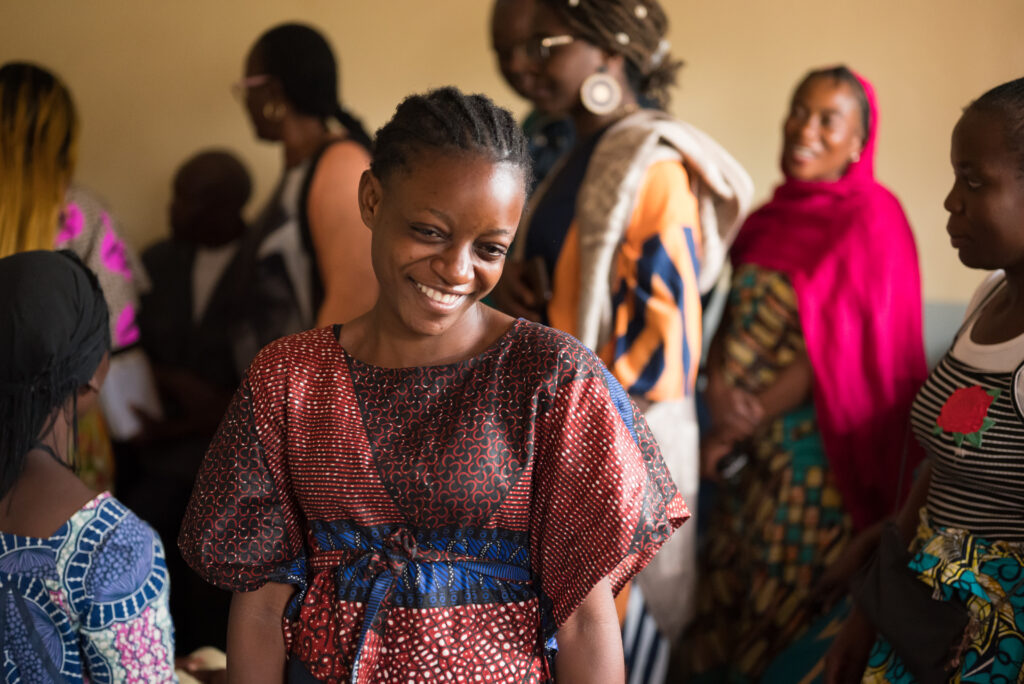
Janinette, a member of an ICAP-supported savings and loan group
Marie-Paul, 70, who is HIV-positive and a mother of six, is a member of a savings and loan group in Katuba, DRC, where she said she receives both financial and emotional support – a space to be herself.
“This is a family here,” said Marie-Paul. “Everyone knows my status, and everyone is comfortable. No one can even tell that I’m sick because my medication is working. When I can, I visit my friends who may be sick, and if I am sick, they visit me, and I feel really loved.”
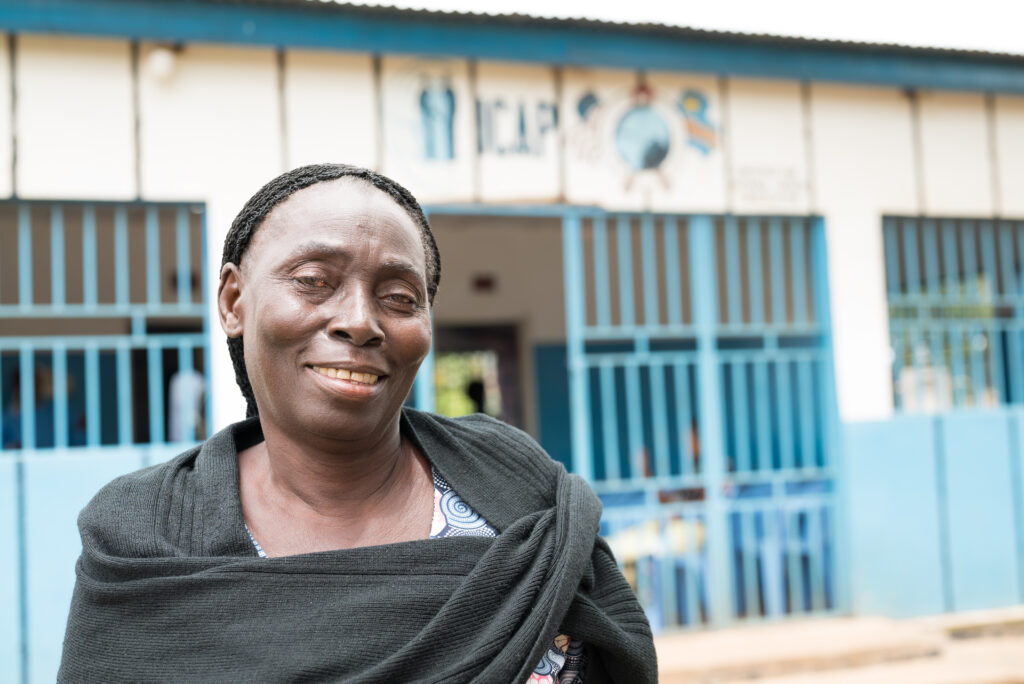
Marie-Paul, a member of an ICAP-supported savings and loan group, attends a meeting in Katuba
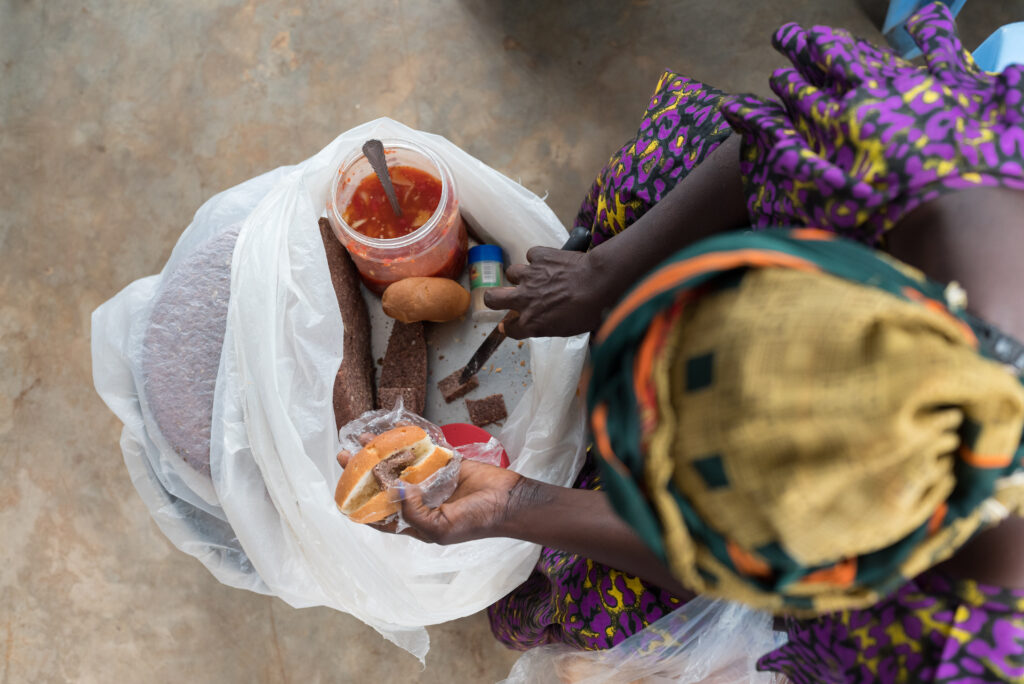
At an ICAP-supported savings and loan group meeting, one of the members hands out food she brought from home
Other community members in Katuba, like Louise – who is not HIV-positive, but cares for her three-year-old granddaughter who is – turn to the savings and loan group for long-term economic stability. Louise’s own daughter passed away from HIV two years prior, leaving the granddaughter in Louise’s care.
“When my daughter passed, it was incredibly hard, but now I am surviving,” Louise said. “By the end of the year, my granddaughter will go to school for the very first time, healthy.”
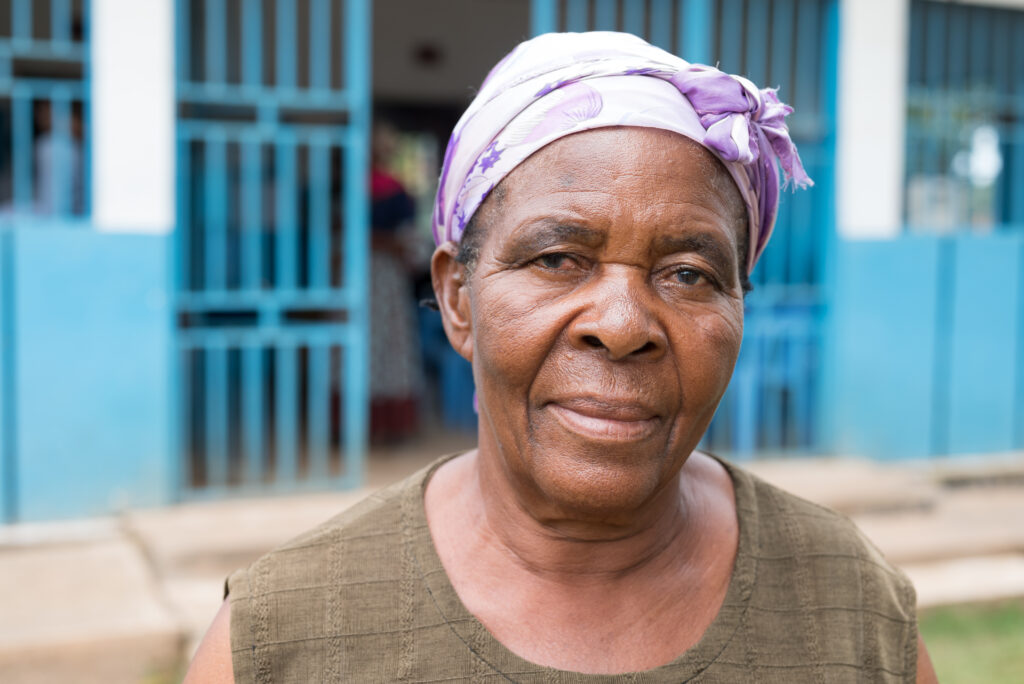
Louise, who is a member of an ICAP-supported savings and loan group, is the caretaker for her granddaughter, who is HIV-positive
Many members of the savings and loan groups, specifically those who experience extremely low-income conditions, benefit from an ICAP-supported scholarship program. The scholarship sends children from the families to school, supporting tuition costs and fees.
A total of 781 members belong to the 34 savings and loan groups in Lubumbashi – among the five health zones ICAP supports, the groups have saved nearly $24,000 in 2023 thus far, with the highest amount saved in the Tshamilemba health zone at $5,989.
At many of the savings and loan group meetings, health staff provide presentations on different topics surrounding HIV care and treatment, such as the importance of taking ART at the same time every day. The group also discusses challenges and misconceptions they face and how they overcome them. Some members serve as examples of resilience to younger, newer members.
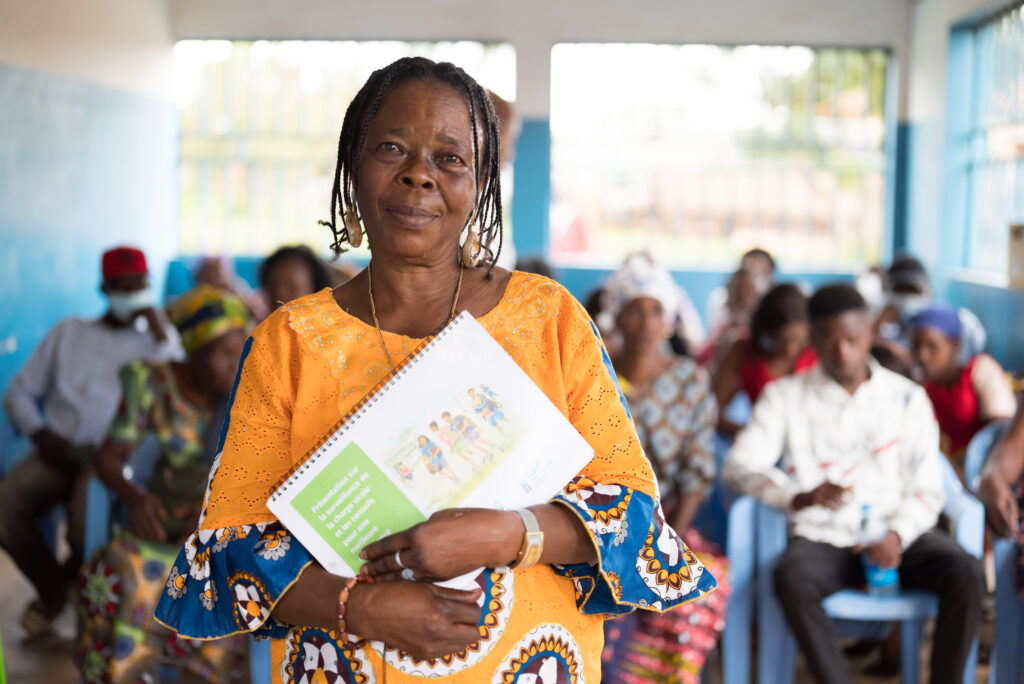
Tena Faila Bibi, who helps guide an ICAP-supported savings and loan group in Katuba, DRC, conducts a presentation on the importance of taking antiretroviral medication every day at the same time
“In 2005, I started to have an infection,” said one group member of a savings and loan group in Katuba. “I took a test, and the doctor told me I was HIV-positive. I didn’t think I could get married after that or have a family. But I started on medication. In 2006, I got married. We had three children who are all HIV-negative.”
In the coming year, ICAP in DRC plans to increase the number of savings groups in each health zone and to train members to create their own groups. Alice Tabala, OVC advisor at ICAP in DRC, said that carving this pathway to long-term financial independence is essential to creating better health outcomes for people living with HIV.
“When someone is living with HIV, it’s not just their own lives affected, but typically their entire family unit,” said Tabala. “ICAP uses a long-term, multi-pronged approach to address this complexity. We aim to prevent HIV as well as treat those who are positive, support stabilization of the socio-economic situation of the family, ensure school support for children in the family, and then direct all members of the family to other community resources for needs that we may not be able to address.”
As the savings and loan group members gather weekly, placing money in their central bank, the sentiment of “I am here” holds much greater meaning than noting their attendance – I am here, the members say, to stay.
Photos by Artur Francisco for ICAP
About ICAP
A major global health organization that has been improving public health in countries around the world for two decades, ICAP works to transform the health of populations through innovation, science, and global collaboration. Based at Columbia Mailman School of Public Health, ICAP has projects in more than 40 countries, working side-by-side with ministries of health and local governmental, non-governmental, academic, and community partners to confront some of the world’s greatest health challenges. Through evidence-informed programs, meaningful research, tailored technical assistance, effective training and education programs, and rigorous surveillance to measure and evaluate the impact of public health interventions, ICAP aims to realize a global vision of healthy people, empowered communities, and thriving societies. Online at icap.columbia.edu


